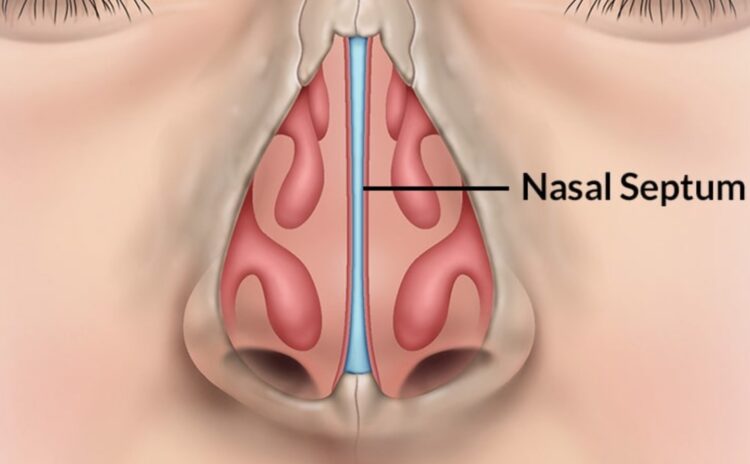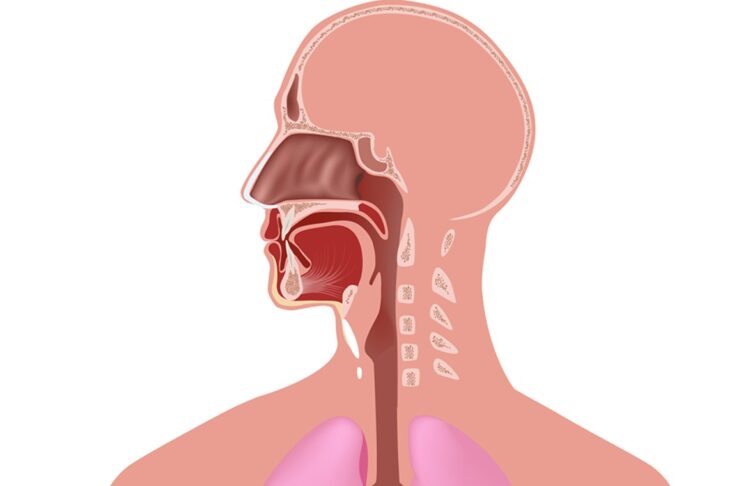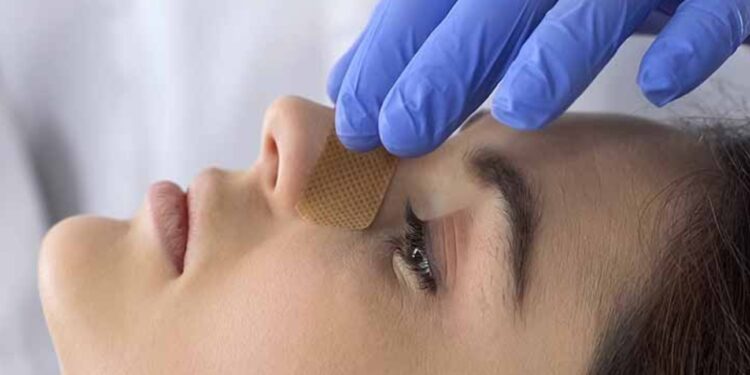A deviated nasal septum is a condition where the septum that divides the right and left nostrils get crooked or deviated sideways. It is estimated that about 80 percent of individuals have a misalignment with their nasal passages. However, a deviated nasal septum shouldn’t be ignored and it should be treated to prevent serious health concerns or long-term health health-related conditions. In case you feel like you are suffering from a deviated nasal septum, feel free to contact your nearest ENT doctor or rhinologists and discuss the best and safest treatment options to fix your deviated nasal septum.
Typically, a deviated nasal septum has no relevant health implications, but if the nasal septum is significantly crooked or off-center, this can cause few complications where surgical intervention is required immediately.

What happens if the deviated nasal septum is left untreated?
A deviated nasal septum can be a result of either a birth defect or an injury to the nose. If the deviation is small and typically doesn’t cause any noticeable symptoms, then it can be left untreated. However, if you are suffering from symptoms of deviated nasal septum like difficulty breathing, postnasal drip, loud breathing, disturbed sleep, etc.- you need to undergo a surgical procedure called septoplasty or follow all the instructions suggested by your ENT doctor or rhinologist.
In case you wish to delay or avoid the treatment for a deviated nasal septum, you can suffer from serious health concerns that can impact your daily activities and your quality of life. However, the severity of deviated nasal septum becomes worse if the symptoms start becoming aggravated. If deviated nasal septum is not treated, it can cause some serious complications and a few of them are:
- Recurring sinus infections: If the deviation is left untreated, it can result in preventing the adequate drainage of your sinuses and thus leads to recurring sinus infections.
- Frequent nosebleeds: If proper care is not taken and if you avoid treatment for your deviated nasal septum, it can cause drying of the inner surfaces of your nose, leading to frequent nosebleeds. In severe cases, uncontrollable bleeding can occur. So, it is advised not to avoid or delay the deviated nasal septum treatment.
- Nasal obstruction or obstruction to the airflow: Upon leaving the deviated nasal septum without any surgery or treatment, it can slowly obstruct or block your nasal passages and result in decreased airflow through the nose, making it difficult for you to breathe. It can also lead to reduced levels of oxygen intake. So, be aware before delaying the treatment or surgery to cure your deviated nasal septum.
- Nasal congestion or build-up of pressure on the nose: The deviated nasal septum can lead to nasal congestion which ultimately leads to a build-up of extra pressure on the nose. This pressure can make you feel uncomfortable and makes it hard to breathe.
- Loss of sense of smell: The deviated nasal septum can reduce your sense of smell as a result of inferior turbinate hypertrophy. However, if you are suffering from asthma, chronic rhinosinusitis, and other inflammatory diseases, you can experience a more severe loss of sense of smell. However, undergoing septoplasty can help you to regain your sense of smell.
- Snoring: Snoring can be noticed if you have a deviated nasal septum. Due to a deviation, airflow into your nose is restricted and you can’t breathe properly through your nose. In case you suffer from loud snoring, it can affect your partner’s sleep as well. So, it is advised to consult with the best and safest ENT doctors in Delhi and undergo the surgical procedure to straighten the deviated nasal septum.

What are the causes of deviated nasal septum?
The nasal septum is a thin wall that separates the nasal passages and it can get crooked or deviated or displaced from its original position. This condition is called a deviated nasal septum. A deviated nasal septum can be caused due to birth defect [congenital] and an injury to the nose.
Injury or damage to the nose can occur as a result of trauma in a car accident, contact sports, and some other injuries. Aging can also contribute to the deviated nasal septum as nasal structures can change with time.
To know more details about the causes, symptoms, risks, complications, and treatment options for deviated nasal septum, book an appointment with the best and well experienced ENT doctors at your nearest hospital.

Treatment options for your deviated nasal septum:
Most of the ENT doctors or nose specialists in Delhi are highly experienced in diagnosing and treating your deviated nasal septum with the help of USFDA approved surgical techniques and medical devices. However, they mainly focus on two levels of treatments such as treating and subsiding symptoms, and surgical correction of the deviated nasal septum.
Depending on the severity of your health condition and as a part of the first level of focus, ENT doctors can recommend medical therapy that includes usage of nasal corticosteroid sprays, decongestants, or antihistamines. These medications are used to prevent swelling and congestive symptoms which can aggravate your breathing problems due to deviated nasal septum. By using these medications, your swollen mucous membrane can be treated and your breathing can return to normal.
If the deviation is large enough to affect your health condition, and the medications are not as effective as expected, then you are a good candidate to undergo septoplasty. Septoplasty is a surgical intervention that is recommended and performed by ENT doctors to straighten or reposition the deviated nasal septum to the center of your nasal passage. In cities like Delhi, Pune, Bangalore, Hyderabad, Chennai, Kolkata, Gujrat etc, you can undergo the latest and safest septoplasty surgery at Pristyn Care under the supervision of highly experienced and well trained ENT doctors.
If you wish to consult with their ENT doctors, make a call or visit their official website. They also provide online consultation services and you can avail those through their mobile application.

Conclusion:
If a deviated nasal septum is left untreated, it can affect your daily routines and the quality of your life. It can also lead to some serious and major health concerns like sleep apnea, nosebleeds, and frequent nose infections. In order to avoid symptoms caused by the deviated nasal septum, you should use a few medications. To reposition or straighten the nasal septum into the center of the nasals passages, ENT doctors can perform septoplasty which is the best and advanced surgical procedure. It involves minimal or no risk of infection.
ENT doctors in Delhi, Bangalore, Hyderabad, Pune, and Chennai are highly experienced in straightening the deviated nasal septum. They also reduce the risk of infection and decrease the chances of occurrence of post-surgical complications through using USFDA approved medical and surgical devices.





